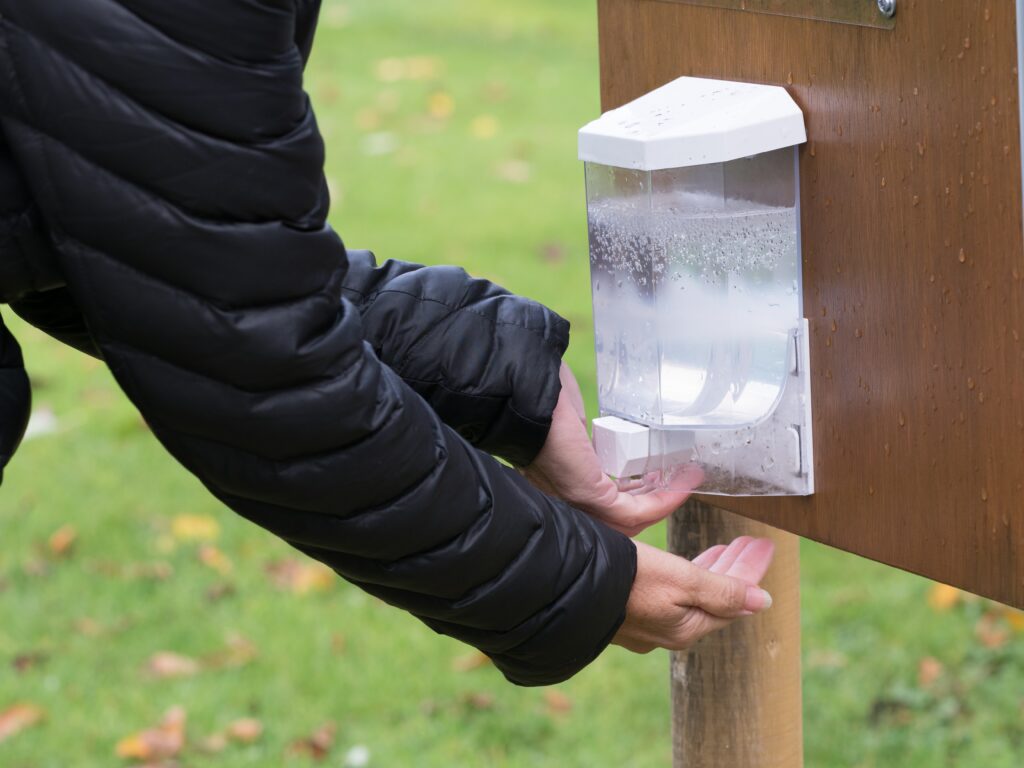The Benefits and Limits of Hand Sanitizer

Hand sanitizer has become a staple in our daily lives, especially during the ongoing COVID-19 pandemic. It is an easy and convenient way to keep our hands clean and prevent the spread of germs. However, like any product, hand sanitizer has its benefits and limitations. In this blog post, we will explore the benefits and limitations of hand sanitizer.
Benefits of Hand Sanitizer:
- Convenient and easy to use: Hand sanitizer is a quick and easy way to clean your hands, especially when you don’t have access to soap and water. You can carry it with you wherever you go and use it whenever you need it.
- Kills germs: Hand sanitizer contains alcohol, which kills germs and bacteria on your hands. It is effective in reducing the risk of infections, especially in settings where soap and water are not readily available.
- Can be used on the go:Hand sanitizer is perfect for use on the go, such as when you’re traveling, commuting, or at work. It is also great for use in public places, such as restaurants and shopping malls, where there are many people and surfaces to touch.
- Can prevent the spread of illness: Using hand sanitizer can help prevent the spread of illness, including colds, flu, and COVID-19. By killing germs on your hands, you reduce the risk of transmitting them to others.
- Can be a backup when soap and water are not available: Hand sanitizer can be a useful backup option when soap and water are not available, such as when you’re outdoors or in a public place without access to a restroom.
- Can be less drying than soap and water: For people with dry or sensitive skin, hand sanitizer may be a less drying option than washing with soap and water, especially if they use a moisturizing hand sanitizer formula.
- Can reduce water consumption: Using hand sanitizer instead of washing with soap and water can help reduce water consumption, which is especially important in areas with water shortages.

Limitations of Hand Sanitizer:
- Does not clean dirt or grime: Hand sanitizer is not effective at removing dirt or grime from your hands. It is only designed to kill germs and bacteria. If your hands are visibly dirty, it’s best to wash them with soap and water.
- Does not kill all germs: While hand sanitizer is effective at killing most germs and bacteria, it is not effective against all types of microorganisms. For example, it is not effective against norovirus or Clostridium difficile (C. diff).
- Can cause skin irritation: Some people may experience skin irritation or dryness after using hand sanitizer, especially if they have sensitive skin. If you experience any discomfort, it’s best to stop using hand sanitizer and switch to soap and water.
- Can be harmful if ingested: Hand sanitizer contains alcohol, which can be harmful if ingested. It is important to keep hand sanitizer out of reach of children and pets and to supervise their use.
- Does not remove harmful chemicals: Hand sanitizer is designed to kill germs and bacteria, but it does not remove harmful chemicals from your hands, such as pesticides or heavy metals. If you have been exposed to harmful chemicals, it’s important to wash your hands thoroughly with soap and water.
- May not be effective against certain viruses: While hand sanitizer is effective against most viruses, such as the flu virus, it may not be effective against certain viruses, such as the norovirus, which causes stomach flu.
- Can contribute to antimicrobial resistance: Overuse of hand sanitizer can contribute to the development of antimicrobial resistance, which is when bacteria become resistant to antibiotics and other antimicrobial treatments.
Summary
Hand sanitizer is a useful tool for keeping your hands clean and preventing the spread of germs, but it has its limitations. It’s important to use hand sanitizer correctly, in conjunction with other hygiene practices, and to be aware of its limitations in order to make informed decisions about how to protect your health and the health of others.

